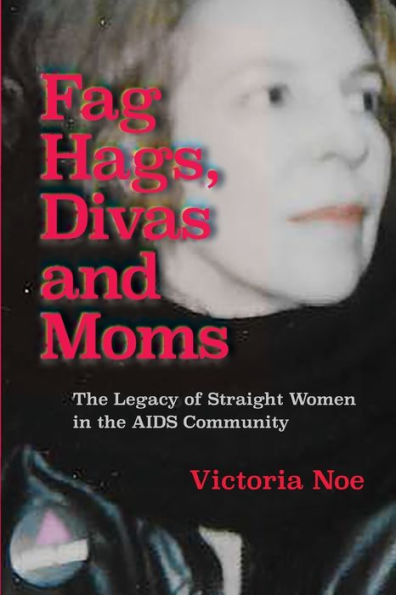The Book That Keeps on Giving
.png) While I work on my next book (Friend Grief and COVID: Pandemic Stories) I continue to spend a significant amount of time on my last book. Fag Hags, Divas and Moms: The Legacy of Straight Women in the AIDS Community will be three years old in March. I expected the initial excitement about it to fade by the end of the first year; that’s pretty normal. But it didn’t. If anything, it has given me the opportunity to expand my business in unexpected ways.
While I work on my next book (Friend Grief and COVID: Pandemic Stories) I continue to spend a significant amount of time on my last book. Fag Hags, Divas and Moms: The Legacy of Straight Women in the AIDS Community will be three years old in March. I expected the initial excitement about it to fade by the end of the first year; that’s pretty normal. But it didn’t. If anything, it has given me the opportunity to expand my business in unexpected ways.
That first year was full of book signings, feature articles, and respectable sales. The success of the book turned me into an expert on the topic. The second year, though, is when it really took off.
The pandemic had shut down a ‘first anniversary and Women’s History Month’ book tour of the east coast after only one drastically downsized event. What we initially believed would be a brief disruption before going back to normal is now entering the third year of restrictions, death, and trauma. Like many others, I wondered how to rebuild a writing business that was largely based on face-to-face events. It took a few months to figure out.
My uncle used to say that there’s no such thing as luck: if you work hard, you’ll find opportunities and opportunities will find you. I thought of that often the past year because of the serendipity of so many things. While I struggled with whether I really wanted to commit to another, infinitely more challenging Friend Grief book, Fag Hags somehow continued to make its presence known. A few ways include:
-
I prioritized creating an audio version of the book and found the perfect narrator: a Black actress originally from Brooklyn, Donna Allen. As it turned out, she had a very personal reason for wanting to do my book: a dear cousin died from AIDS.
-
My intense, negative reaction to the character of Jill in “It’s A Sin”, the British series about the AIDS epidemic in 1980s London, led to a return to the Feast of Fun podcast and several additional interviews.
-
I gave up fighting Amazon - where you can buy that book but I’m banned from advertising it (the title is considered hate speech) - and began advertising on other platforms, most notably Apple, where I sell more than on Amazon. Who knew?
-
I increased my presence on Instagram by posting about a different woman in the book every day last March for Women’s History Month. A later post related to the book resulted in an interview for the World AIDS Museum and Educational Center in Ft. Lauderdale, and invitation to participate in an upcoming panel discussion on women and AIDS.
-
To my great surprise, I also expanded online teaching. In the first year of COVID, I led some workshops for long-term survivors about the trauma of living through their second pandemic (which will be a chapter in the new book). After months of research, I signed on with Teachable to create a course based on the book. I say ‘based on’ because there will be new content: interviews with women who are not in the book. This is not something that was a consideration in the first year after the book came out. But the pandemic taught me to not dismiss anything out of hand just because I hadn’t done it before. To be honest, I’m pretty excited about sharing these women’s stories in a new way later this year.
While I was writing Fag Hags, I went to a writers conference and pitched the book to a few agents. I wasn’t looking for an agent; I just wanted feedback on the concept. One of those agents popped into my head recently. I remember when he interrupted my pitch: “That wasn’t what I thought you were going to say”, he laughed. I guess he thought a woman my age would be pitching a memoir or a cozy mystery set in 1930’s England. “Should I keep going?” I asked, with more self-control than I’ve ever had in my life. “Yeah, sure.”
When I finished, he told me it was very niche, which I already knew. Then he said “no one knows who you are”. He hadn’t asked me about my credentials, but I decided to let him keep talking. “You need a famous gay man to write the forward.” He suggested Anderson Cooper or Larry Kramer; maybe Elton John. I thanked him and walked away.
I give myself a lot of credit for not screaming at him, because that niche community knows who I am. And the idea that I needed a man - any man - to validate my book about women in that community just infuriated me.
But if I saw him today, I would assure him of two things. First, the right people know who I am. And second, three years later, this book continues to have a long shelf life. It’s the gift that keeps on giving.

